Matt Menefee Interview
January 5, 2021
Matt Menefee is an interesting character.
He’s played musically with multiple groups, whether it be his own groups like the now-defunct Cadillac Sky or The Golden Age, or touring and playing arenas with Mumford & Sons, he’s probably the best banjo player alive, but you would never tell just by looking at him. He’s really interesting; so, naturally, I interviewed him in the shed behind his house.
This is a really nice shed, too; it’s super small, but it’s completely furnished, has air conditioning, a computer with maybe four or so monitors, instruments all along the walls, and an arcade cabinet in the corner. Someone could probably live here if they wanted to.

I’m not really sure where to start. Well, first, can you tell me more about this shed we’re in?
This shed? This shed was converted into my little laboratory about a year-and-a-h– two years ago, jeez. And I haven’t come out ever since.
I can tell. You really just need a bathroom in here and you could live in here.
Oh, yeah. I’ve been procrastinating putting a bathroom in here for that very reason. I need to see friends and family.
I guess.
I need to take part in my responsibilities as an adult. [Laughs]
So, right now you’re in– well, I guess it’s more of a band now, but it started out as a duo called The Golden Age, with you and a guy named Bryan Simpson. First off, how did you meet Bryan?
I met Bryan in 2000 and started a band called Cadillac Sky, and we toured together, and wrote and played music together for… well, I guess from 2002 to 2010. And then we stopped playing as Cadillac Sky, I mean, yeah, I guess we went our separate ways but still managed to play music together. And, I had my projects, he had his projects, and I actually played on his solo project called The Whistles & The Bells and had a lot of fun doing that as well. So, the saga continued. We just kept making music together, and one day we just started The Golden Age, and yeah. We’re on record number two now.
Well, that answers about two more of my questions, so, I guess can you tell me a bit more about The Golden Age?
The Golden Age I guess harkens to the innovative stylings of John Hartford and, just, you know, trying to fill spaces that explore sounds and colors that have yet to be explored, lyrically and musically, in the realm of Americana and bluegrass, mainly. Someone we look up to highly is John Hartford. He’d write the most incredible fiddle tunes, yet have the most thought-provoking and humor combination in his lyricism, and explore sounds and creativity that I think… he’s kinda the only guy that’s done that, you know? And so, we kinda look to him as an inspiration into what we try to do, as well as other styles of music that we love, and combine those. So I guess that’s what we’re going for musically, and… let’s see… how else can I expand on that?
[My dad, who was also in the shed at the time, chimed in:] You mentioned the humor, that’s exactly what you guys have done. Simpson’s lyrics are pretty entertaining.
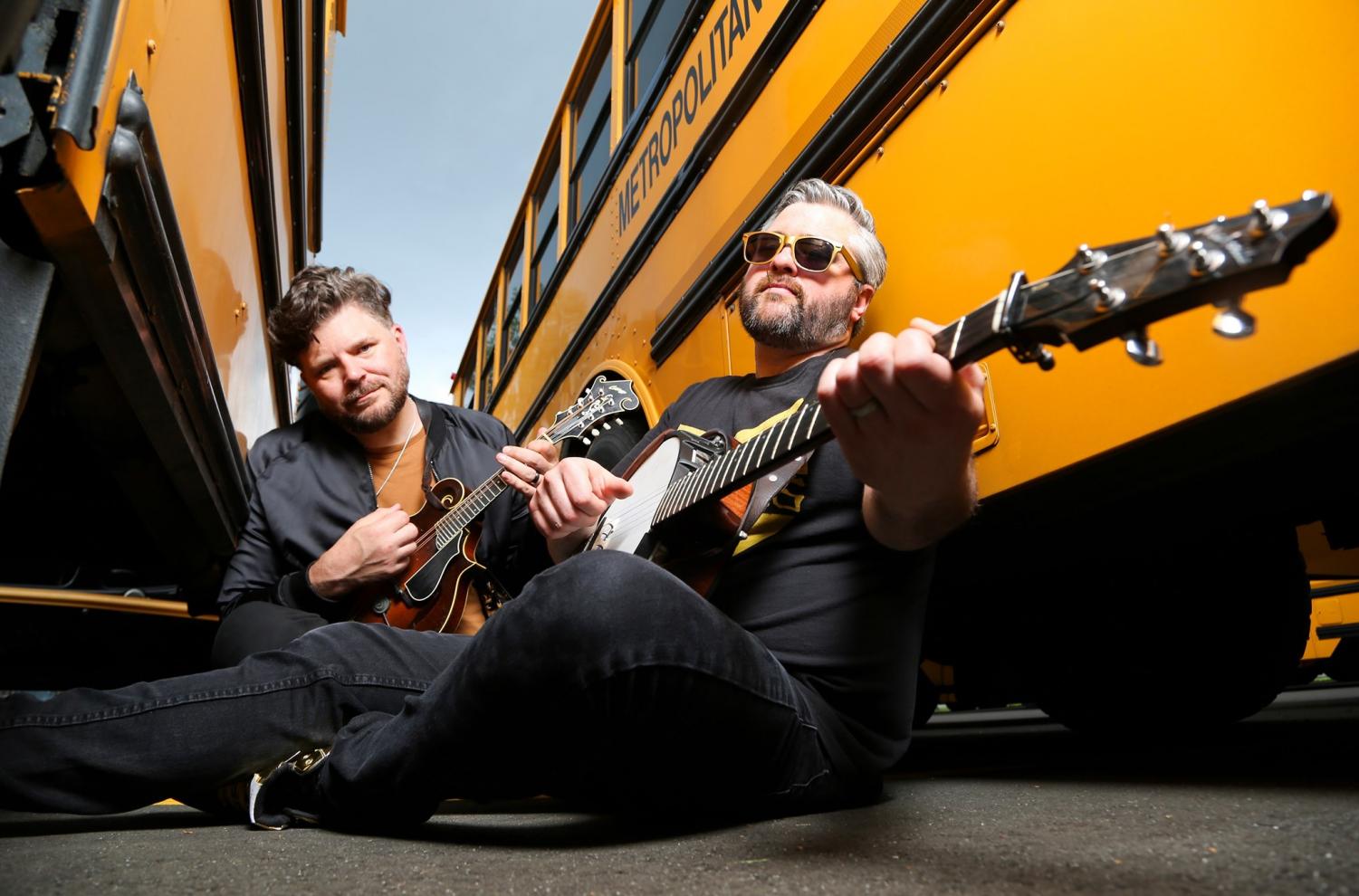
Yeah, I haven’t listened to any John Hartford stuff, but the way you’re describing it, I can definitely see some of that in the Golden Age music. There seems to be a lot of stuff taken into account when making Golden Age stuff; is there anything that you’ve learned while making the first album that you’ve put into account while making the second one?
Actually, the second one has been a less hands-on approach. The first one, there was a lot of arranging, musical arranging, to it. There was a lot of song arrangement, I guess that’s what I mean. So, this time, we went in and just… I think, those who could stand it, would not listen back to the playback. We would just record it live, and let it be what it is. No matter how we played, it was just, “that’s that.” We didn’t really rehearse all that much, we just got familiar with the songs a bit, just did a couple of takes, and– I didn’t listen back to any of the record, so that was kinda– that was actually something that Hartford did. I mean, a lot of artists have done that. It’s like, “alright, we don’t know the song, here’s the chart, we’re just going to play through it.” Actually, “here’s not the chart, you’re just gonna follow your ears,” and that’s gonna bring out some unfamiliarity that the musicians are encountering with the song. It’s gonna bring out some danger to their playing because, you know, like, they don’t know what’s going to happen next, they don’t know what the lyrics are saying, they’re just going to tune in. So it’s, like, hyper-focus, all of your senses are activated, so you’re like, “okay, what are the lyrics saying,” but it’s all, like, spur of the moment. So what it’s bringing out is this dangerous kind of approach to the song. Like, some bad notes, but are they really bad notes, you know? Is there such thing as a bad note? I don’t know.
I remember hearing parts where Bryan messed up in the Golden Age record, and you could tell that he messed up, but it was still entertaining.
Yeah, you can still feel the heart in it, right? So, like, we took that concept even further in this second record.
So, with your live performances– even though these are songs that by now you already know, do you think all of that improvisation still applies to your live performances? Because I remember I saw you at the Station Inn, and you were doing this banjo solo that lasted for minutes, and Bryan kept on trying to cut in, but he couldn’t.
[Laughs] Yeah, “hold fast. I’m not done yet.”
Like a sort of bluegrass jam session, if anything.
Oh, yeah. I think not being married to a certain order of things musically is very important to keep things interesting and alive for the musicians as well as the audience, you know? We’re not keen to play things the exact same way. So, we’ll always add something to the song or the arrangement. The solos, you know are never going to be the same. Maybe we’ll add little snippets of this song and combine it to make a mashup sort of thing. So, I think one of the goals is to keep things interesting and keeping it improvisational to that degree.
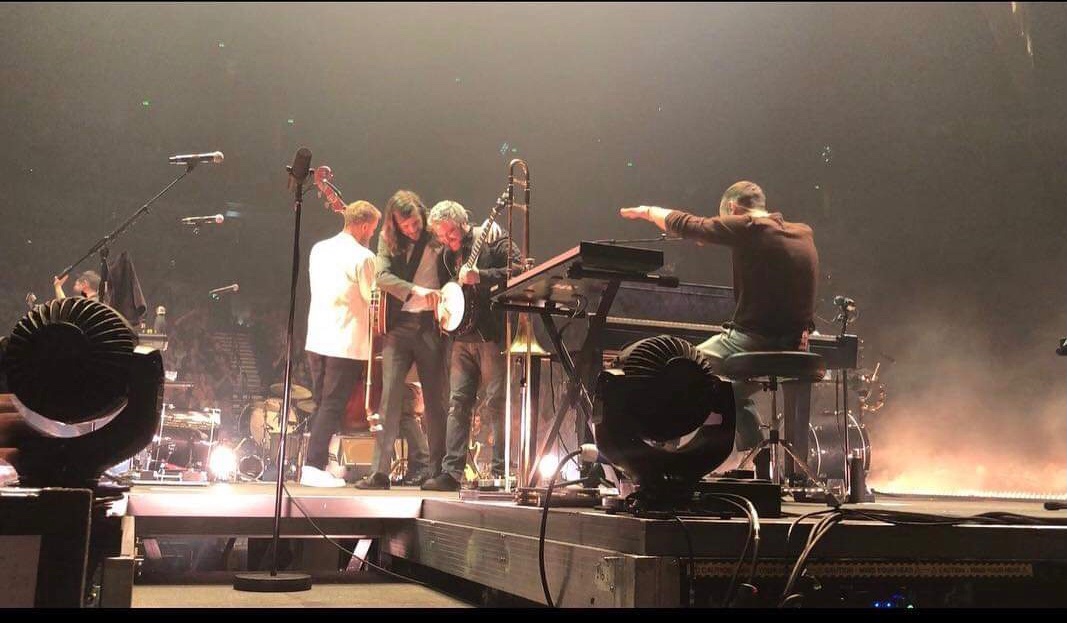
So, I guess continuing on the live stuff, a few years ago you toured with Mumford & Sons.
Yeah, I did.
Yeah, how did that happen?
Well, Cadillac Sky played Telluride in 2010– and it was funny, we were meeting each other for bus call, which was not a bus, it was a fifteen-passenger van with a trailer. And, someone had Mumford & Sons; they were headlining one of the nights. So we checked them out and we thought, “oh, okay! That makes sense!” So, we went to Telluride– and, you know, we had a lot of dates before leading up there, and then continued our run afterwards, you know. But we played our set in the afternoon and we saw the four boys just hanging out there in the front row, and they knew all of the words; we were like, “what in the world?” So, we went back to the CD table, and at the end of the line was Winston, Ben, and Ted, then I think Marcus came along, and they were just waiting to get a CD. I think Ross [the fiddle player] and I were like, “what?” So we went out and met them and said, “what are you guys doing?” Like, we just gave them a CD. Come on, man. So, we just hit it off, man. We hung out the entire festival. Eventually, they got up on-stage and did their set, they invited us up on-stage with a bunch of people. So that’s how we met them. Then they asked us to go on tour and open up for them in October and November in 2010, so we did that. I think Cadillac Sky gained maybe 75% of its fanbase from that tour, and then we broke up. [Laughs] So it goes. But Ross and I continued to do stuff with them, and we went on the Railroad Revival Tour with them. And then I continued going out with them as a special guest, I guess 2014 was the last time I went out with them. I mean, I played Bridgestone with them in 2019, so I mean, yeah we still– I actually just received a new Winston Marshall Deering model [banjo], so, yeah, we stay in touch.
Yeah, I was going to ask about that. The four-thousand dollar electric banjo. I’m not really sure what to ask about it, but… wow.
Yeah. Well, he made it, and–
He made it?
Well, he had it, he didn’t make it. Sorry. Deering made it, but it’s to his specs. And I saw him, and he said, “mate, check this out! They just made this,” and I was like, “man, that’s a beautiful banjo,” and he ended up sending one to me. So, very, very cool. Just, super nice guys.
I guess you guys are definitely friends, like, you definitely stay in contact.
Yeah, absolutely, absolutely.
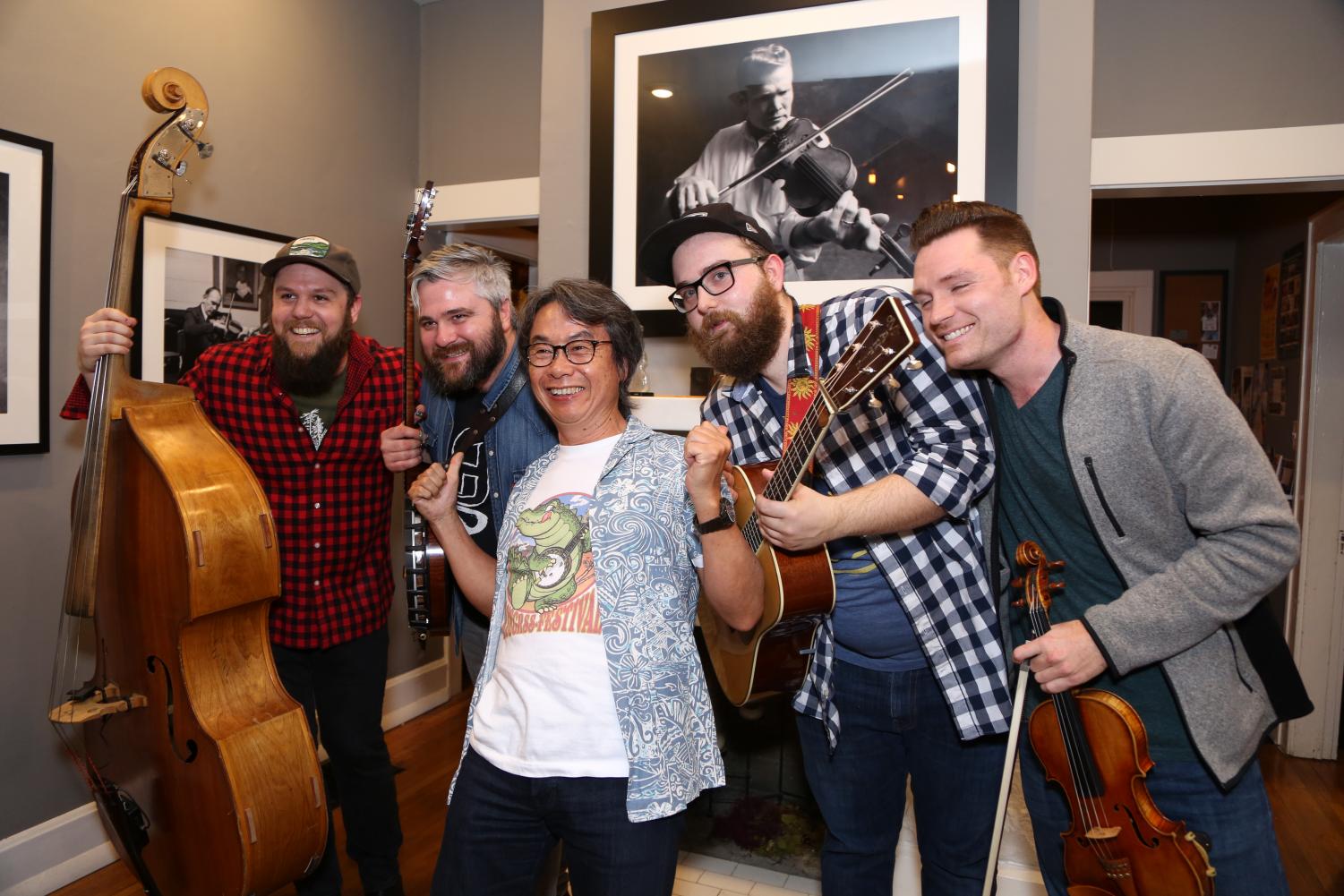
Well, I guess talking more about some of your projects, one of the more recent ones was The Hit Points. So, I want to ask how that formed, but another thing I want to add– the album is on Bandcamp, and there’s just a wall of people who have bought this album. I know you guys even played for Shigeru Miyamoto at a private concert, which I was at, and that was amazing. Were you expecting it to get as popular as it did, as well?
Oh, no. I definitely did not. I guess, in 2016 I was on tour with Warren Haynes, who was the guitarist for The Allman Brothers. Chessboxer, another project I had, went on tour with him. We were on that tour, things were kinda winding down for Chessboxer. I was like, “okay, I gotta do something, what am I going to do. What do I love?” I’ve always loved video game music, I’ve always loved that kind of thing. I sort of realized that being a video game composer was a thing outside of Japan, or, you know, as a kid I just thought it was the computers… [laughs] whatever that means. “The computers, they were making the music.” Anyway, I wanted to make a solo record, but I’m not really like a spotlight kind of guy. I don’t really do well with that. I’d rather do things with other people, I guess. There’s so much to do with that. Like, you’ve got to talk to people by yourself, and represent yourself by yourself, and all that, you know what I mean? But I was going to give it a shot and started arranging stuff on the road. I think I even called your dad, I was going to do a photo shoot and everything. I think that’s what actually scared me, like, “oh god, I really, really don’t want to do this–” and it would probably be better to make it a band kind of thing anyway, right? So, the concept was there, I know exactly who I wanted to get for players and everything to make this record. I called Eli first, Eli Bishop, because he and I had a mutual love for video game music, so this was going to be a no-brainer. He’d probably love to do something. He was a bit apprehensive at first, but, you know, I got him. Then, I had met Jake Stargel when, man, when he was fourteen, I think, playing with The Lovell Sisters. And back then, he was such an incredible guitar player, and I knew he was just killing it now. So I knew that just had to happen. Royal [Masat] was playing bass in Chessboxer, so he played most of [The Hit Points]. Then I met Geoff Saunders at Music City Roots, he was playing with Mark O’Connor, and, oh my gosh man, his bass chops were incredible. So, we got him to play on a track on the record. We had a nice cast of people on the record. It was a really, really fun, colorful experience. I had no idea that it was going to do anything, really. It’s just more of an expression of, “I wuv you– [laughs]– I wuv you video game music!” And it had such a huge impact on me growing up, like… it inspired me to– it expanded my palette. Like, jazz fusion, metal, all kinds of stuff.
Metal? The Hit Points?
Well, I mean some of the songs, yeah. They’re very…
Yeah, I guess stuff like Castlevania would…
Well, like, Double Dragon, that’s a very 80s metal kind of, you know, song to begin with if you listen to the original. Now, new games like the Double Dragon Neon soundtrack, like, that’s metal.
Definitely stuff like the new Doom games is crazy.
Yeah, that stuff. There’s some metal kind of stuff. And, you know, it’s all 8-bit soundbites, it’s hard to get that across, but you can hear it rhythmically. It definitely had a huge impact on expanding my palette musically.
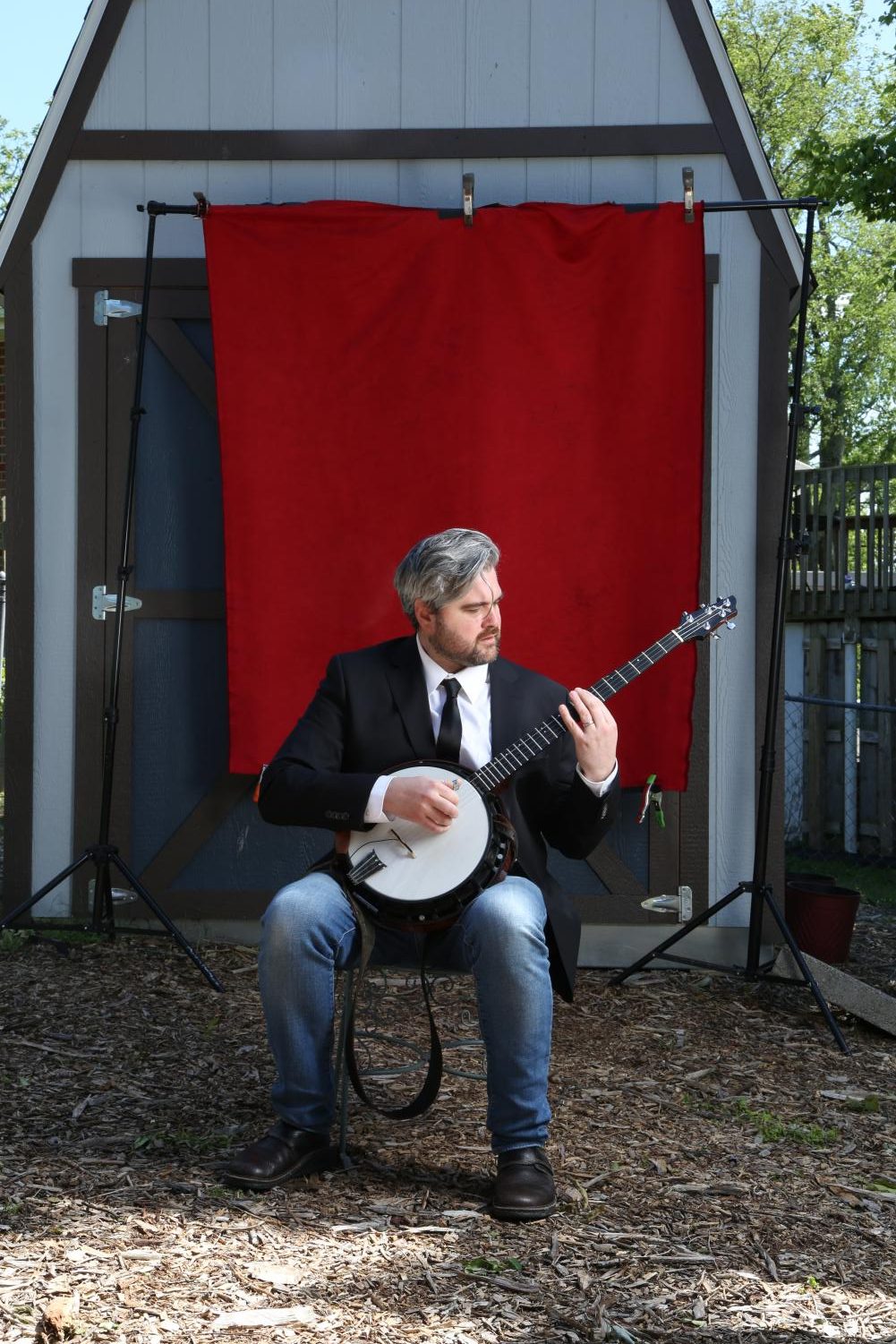
So, The Hit Points kept growing, and growing, and growing, and, as far as I know now– I don’t know if it’s completely off, but it’s at least defunct for now. So, at least for now, what caused the dissolving of The Hit Points?
Um, well… let me think here. Diplomatically speaking, um… it was…… it was because I didn’t set clear boundaries, and I gave too much power to the wrong people. [Laughs]
Maybe we should stop there.
Yeah, yeah let’s stop there. [laughs]
Yeah, I don’t really know how to diplomatically spell that out.
So, I’ve noticed a lot of– all except one unnamed person from The Hit Points are pretty much apart of The Golden Age now. You, Bryan, Geoff, Jake, the new fiddle player, I forgot his name, but that is just an excellent lineup. Do you think that’s sort of going to be the new Hit Points member lineup? Or are you still going to alternate between, say, bass players and guitar players?
Yeah, I mean, I don’t know how I feel about– every time I do an arrangement for The Hit Points, or Matt, TheBanjoPlayer, or however you want to look at it, I just have this longing to compose. I mean, it’s great to get that kind of attention of, like, “oh wow,” but it’s a cover song, so you think, “I wish I would’ve written that,” or, “I wish I used these kinds of ideas on my own song.” Like, I’m taking original ideas, and implementing them into an already existing composition. You think, “I don’t know how this is happening,” which is the magic of music. You look back and think, “I made this and I don’t know how the hell I did that.” It’s super magical, that’s what I love about music. So, it’s like you’re putting your heart and soul and a piece of you into these arrangements, and you think, “I should have just written something,” and that’s where I’m at with this whole covering video games thing. Like, it’s great if you want notoriety, you know, it’s a great avenue for that… I don’t know, I’m kind of on the fence about what to do with it. I mean, I still love it, it’s a passion of mine, but I’m kind of starting right now to write my own compositions and just put those out there as well. And, you know, Golden Age is an outlet for that, but it’s different. It’s not as musically explorative as the things that I’d like to compose. So, I don’t know. Did that answer anything?
Uh, that does not answer what I asked at all, but–
[Laughs]
–but that’s still very interesting.
[Note: I’m pretty sure I remembered what I asked wrong. He answered exactly what I asked.]
Sorry about that.
No, that’s probably still something I would’ve asked. I was just asking if the live lineup for The Golden Age, like Geoff, Jake, Bryan, you, the new fiddle player–
Holy snapdragons, how did I miss that? [laughs]
I don’t know, but what I was asking was, rather than you and Bryan as a duo being The Golden Age, do you think that lineup of people is the new Golden Age?
Oh, no. The members aren’t set in stone. They’ve been kind enough to say yes every time we’ve asked them. In terms of The Golden Age, we definitely love their playing and want to keep them involved as long as possible, but they’re freelancers. So, we’d love to continue hiring them as long as they continue to say yes. [Laughs] But if somebody was to miss, we’d just have to get someone else, you know? That kind of thing. Did that answer…?
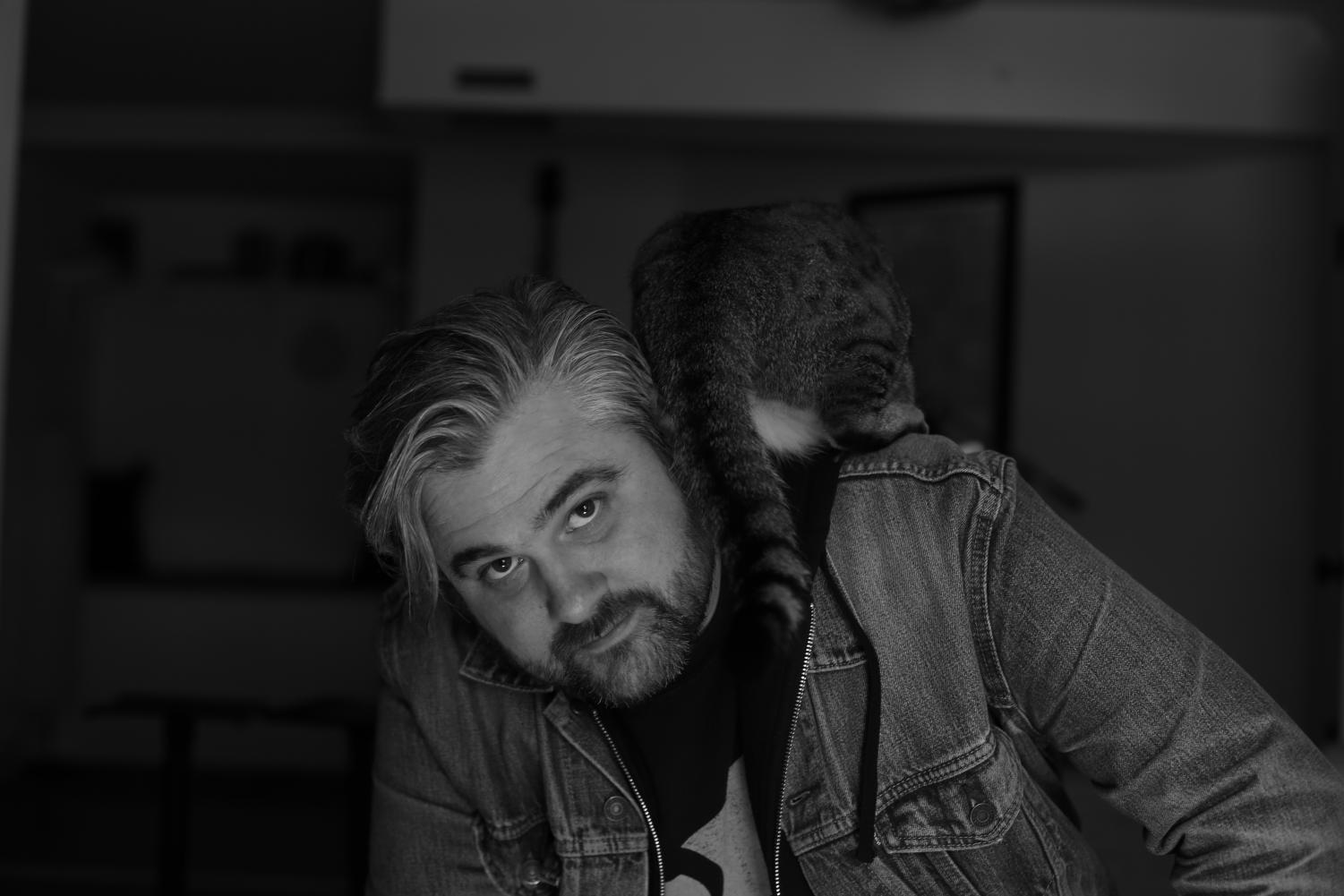
Yeah! Yeah. So, I guess, when and how did you start playing the banjo, and how did you get so good? Because you are, like, really good.
Thanks, man, I appreciate it. I started playing banjo because I was playing too many video games.
Why specifically the banjo when it comes to video games?
Well, it was what was lying aro– [claps] okay, here’s why. I grew up with my grandpa playing bluegrass music. He had a few friends he had local groups with, and one of them was a banjo player called John Brown. He had a pre-war banjo, it was beautiful. I remember as a small kid, just crawling underneath the kitchen table and just watching him play because he had the most shiny instrument. There’s, like, an acoustic guitar, and then the banjo, which was like this motorcycle, or something, you know? It just had all of this chrome and everything, and there was a lot more involvement in the fingerpicking and all this stuff, and it was just really interesting to view, you know? I still remember that. I still remember all of the smells and the sound of the crispiness of the banjo. It was really cool. So, I was drawn to that. And, let’s see, my uncle had one laying around. So, my mom and dad were frightened at how much I was playing video games. And, I would record myself conquering these games so that I could listen to the music. Because that’s actually what was as appealing, if not more– like, I would play the game, even though it wasn’t fun, if the soundtrack was good. You know what I mean? Like, that’s how much it meant to me. For the music to be good. So, I would record myself playing these games with a little tape recorder I had, and then I would put that in my Walkman and listen to it, and that was freaking my parents out, too. So, they were like, “okay, we gotta get this kid doing something else.” My uncle had a banjo in his closet, and he said, “I’m not using this, here., take this. He likes banjos, or whatever.” And, I got it, and there was a man who owned a shop called Phoenix Guitars, and it was the only one in Artesia, New Mexico, a desolate little town of ten-thousand. And he was a guitar player, but he knew just enough about banjo to get me started. So, he taught me these roll patterns and chords and all this stuff, and I just took that, and all of my ADD focus I was putting into video games, I just put that into that. Oh, my grandpa, man. He was a walking songbook. I mean, he could sing songs for days without singing the same ones over and over again, you know? He just knew tons of them, and so he would jam with me. Like, as soon as I had the chords and the rolls under my fingers, he just would jam with me. And I would learn from records, he would show me records of Flatt & Scruggs and The Stanley Brothers, and all that. I had to tune to them, that was kind of frustrating. I didn’t realize that until later, I would just sit there and play out of tune with it. Still learning the notes and still learning the songs, and it was working. So, yeah. I learned from records and was just really engaged by bluegrass. Until I got to college, where it was like, “oh, there’s other music out there…” I ran out of steam, sorry.
No, you’re fine.
[Laughs] Oh, yeah! Learning video game themes on your banjo, I was learning, like, Smashing Pumpkins, and Dr. Dre, and Korn, and Rage Against the Machine, and–
None of those bands sound like they would fit on a banjo.
Yeah, well– because I had all my buddies around me that were listening to these artists like, “you’re playing the banjo, ha, ha, ha, you inbred hillbilly,” and it’s like, “no, check it out, I can play Tomorrow on banjo, I can play Bulls on Parade on banjo, I can play Chutes and Ladders on banjo, I can play Beautiful People on banjo.”
Can you still play Bulls on Parade? Just give us a little bit real fast, if that’s in tune.
[And he did. It really was not as bad as you would think when hearing the idea of Rage Against the Machine being played on a banjo. It was actually really good.]
Anyway, yeah. And it’s like, that’s so simple. Like, what you play on the banjo is so much more complex, but, they were just like, “oh my gosh, that’s Bulls on Parade,” you know what I mean? But, you know, that’s alright. Music doesn’t have to be complex. And I do appreciate uncomplex music. I mean, it’s funky! That’s what it is, you know? It just feels good. Music is supposed to feel good and sound good. I don’t mean like, “oh, banjo music is far superior,” I didn’t mean it like that. I just was saying, I’m learning these complex arpeggios, you know, as opposed to, “[Bulls on Parade riff].” But it feels good.
Okay, not to rush you, but we have about seven minutes left. I have two more questions. So, first off, other than bluegrass, obviously, what music do you personally listen to?
I listen to… uh, everything. Man, I’ve been listening to this incredible jazz record called Mockroot, and, you’ve gotta check this out. It is metal as all get out.
Metal? Metal jazz?
It’s metal jazz. But with pianos. No, there’s a guitar in there, but it’s subtle, like, distortion, you know? Like, it’s just enough. But he’s playing on, like, [super low notes.] Like, it’s heavy. His name is Tigran Hamasyan. It’s killer, dude, you’ve gotta check it out.
I will. Okay, last question. What projects are you working on now, and, just what’s next for you musically?
Right now, I’m releasing electronic tracks that I’ve been writing on the banjo, and I’ve found some audio software that will convert audio WAV files to midi. So, basically, I play my banjo through a microphone, and I can do everything from drums, bass, and synth leads and pads–
Just with your banjo?
Just with my banjo. That’s the schtick. It’s a lot quicker for me to just key in a bassline, or just play pads on the keys instead of doing two voicings on the banjo. But, like, yeah, for schtick purposes, I can definitely do it all on banjo, and I have done the last few tracks– I’m kind of revamping things right now with that. But, yeah, I’m just going to release stuff, it’s kind of like 80s synth-pop kinda vibes on the banjo, and I’m working on getting into video game scoring, I’m not sure whatever that looks like, trying to meet people to do that, and that was kinda the point to The Hit Points, you know. Big pictures, like, meet people like composers and stuff that I can maybe work with, and getting into that whole realm.
I mean, obviously, you met Shigeru Miyamoto, but he’s not a composer. I mean, he’s like two steps away from Koji Kondo, I guess.
[Laughs] Yeah. Two degrees of separation, right?
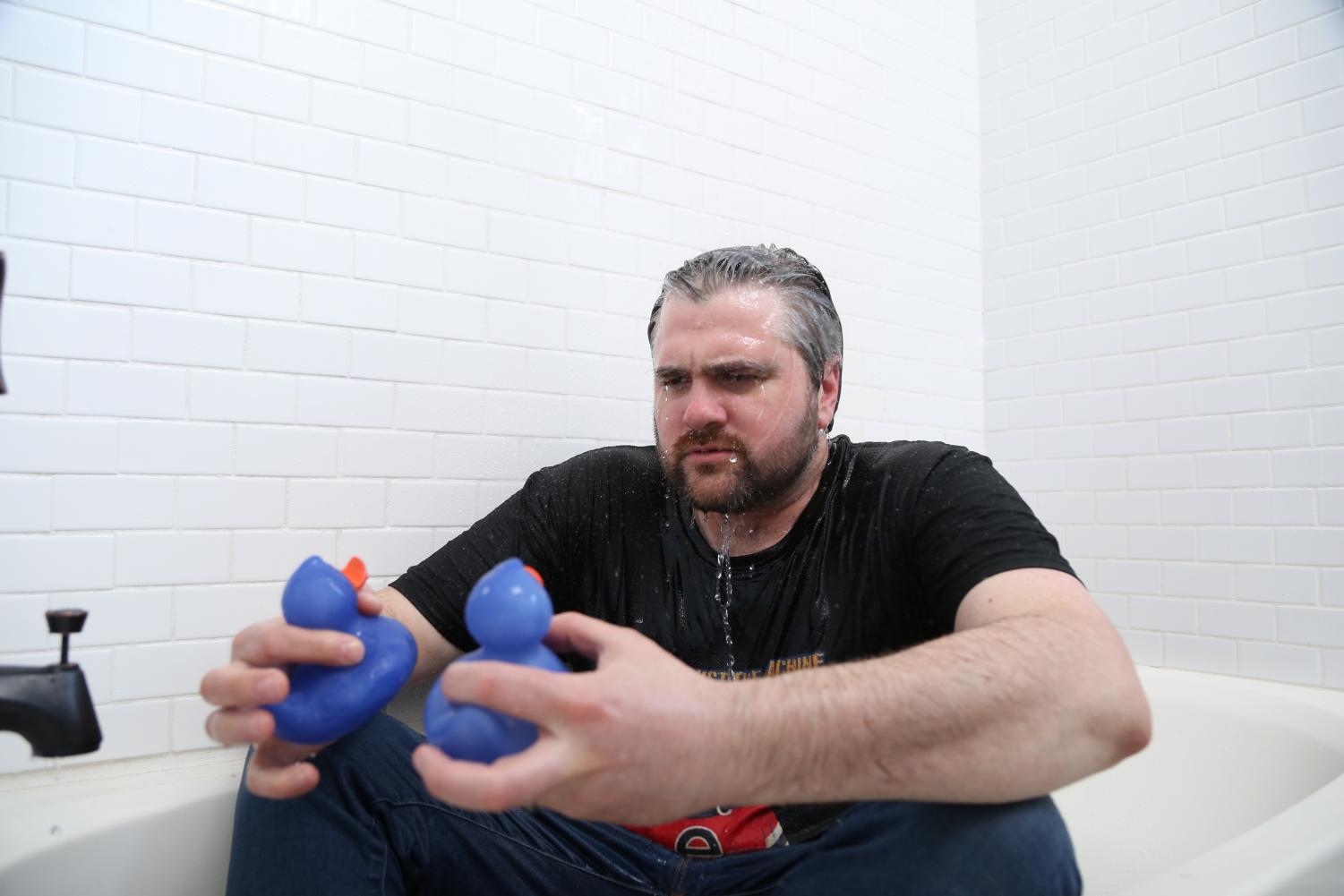
Yeah, well, I’m not really sure how to end this. We need to leave, but, thank you.
Yeah, man, I’m happy to do this.

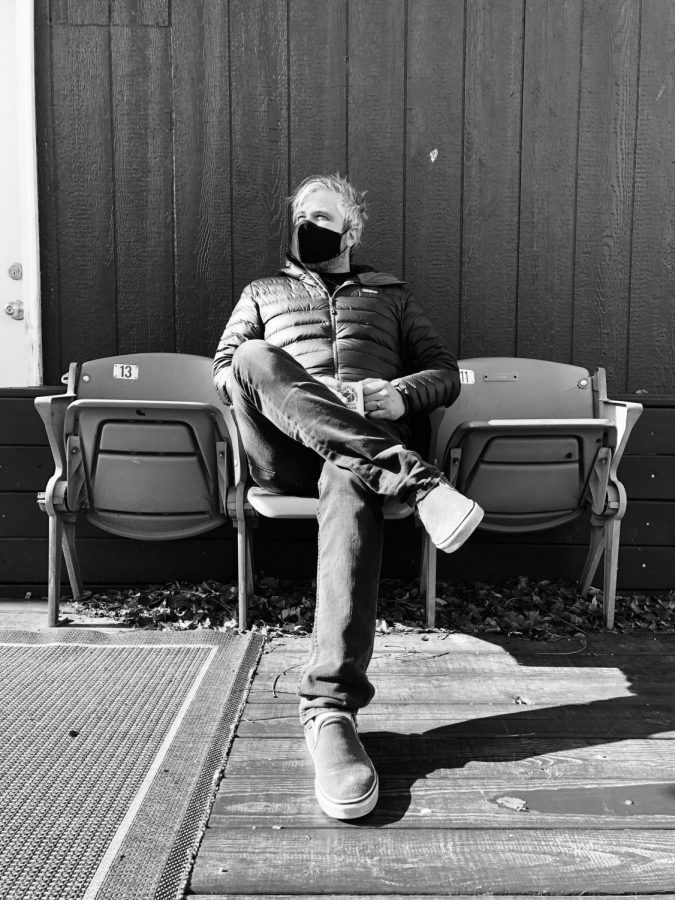
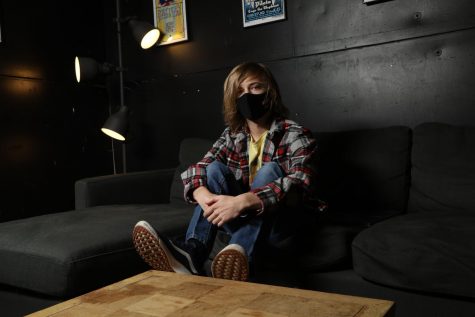
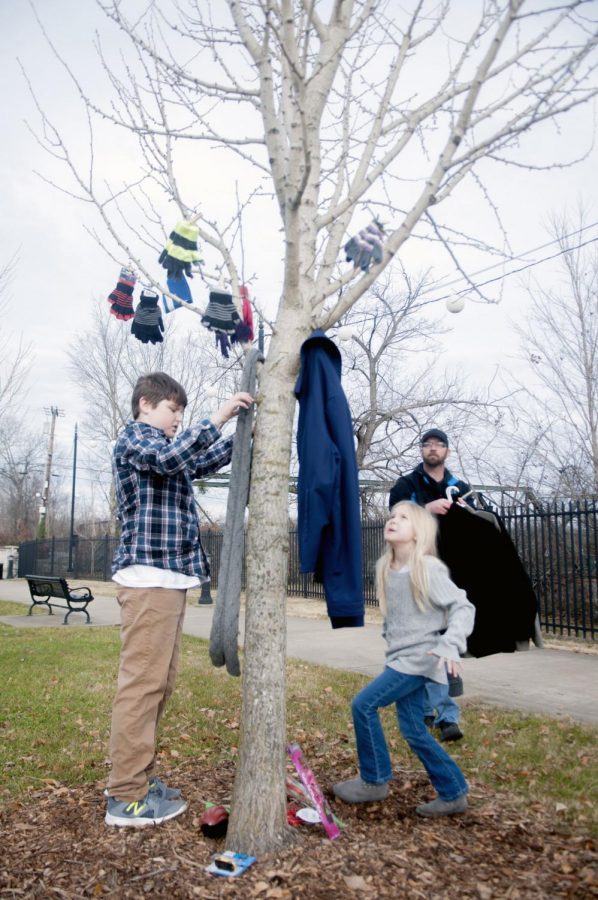
Larry Ring • Oct 9, 2021 at 12:05 pm
Great interview! I amSurprised my Nephew opened up and shared his innermost feelings with you! I thoroughly enjoyed the Warren Haynes tour! It was so good to see Warren and Matt together! Long live music and the feeling it inspires in each of us!
Charles T. Lawrence • Jan 14, 2021 at 7:16 pm
Appropriate probing questions. You have the ability to make your subject comfortable.